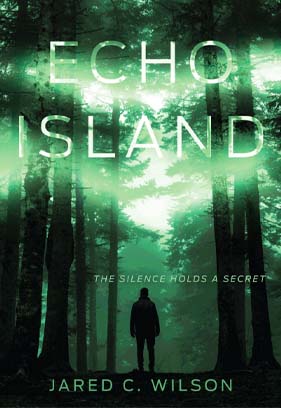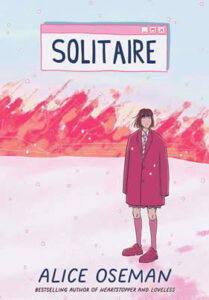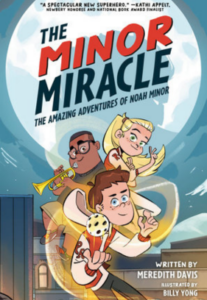If you were to ask Jason, Bradley, Archer and Tim about their friendships, they’d probably say that they were pretty stereotypical. They had been best friends way back in middle school, but sort of drifted apart in the later grades. Other than Bradley and Tim, that is, who are still best buds.
But if pressed, the guys would probably admit that they’ve all grown into being fairly stereotypical themselves. Bradley is definitely the football jock. Tim is an overeating nice guy. Archer would be the too-often-in-his-own-head brainiac. And Jason? Jason is just an average guy: a normal 17-year-old who goes to church youth group once in a while.
Anyway, these used-to-be besties decide to all get together and trek off from their home of Echo Island for a post-graduation camping trip on the mainland. It just seemed like the right thing to do. Sorta like capping off the school years with a camping reunion before they head their different ways for college. They probably wouldn’t be seeing a whole lot of each other going forward, so this was a thanks-for-the-memories trip.
At least, that’s how they thought things would go. But upon completing that not-so-thrilling campout on the mainland and returning back to Echo Island, the boys are met with something really strange: nothing. I mean the town is there, but the streets are empty, the cars are empty, the buildings and homes are empty. Even the air is empty: the boys are surrounded with utter silence.
Not only that, but there’s no power. Batteries don’t work. Engines won’t fire. No telephone, no radio, no clocks. Oh, and the ferry that dropped them off quickly sailed away and doesn’t return.
All of a sudden, these four stereotypical friends find themselves in a not-so-typical situation. They’re trapped together on a totally deserted island. And when one of them has the bright idea of climbing to the top of the island’s lighthouse, the highest point to be found, there’s one other frightening discovery made. The mainland is gone, too.
Jason reminds the guys that this isn’t the time to start panicking. But even he can’t help thinking: if not now, when?











